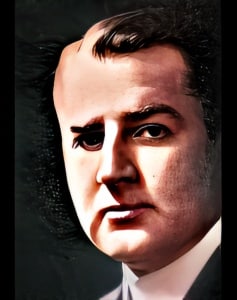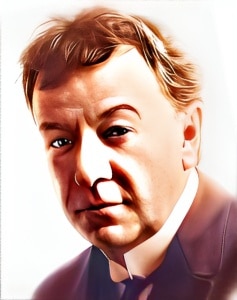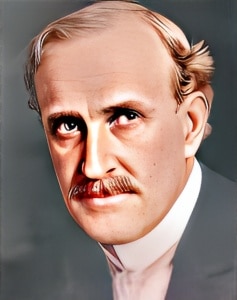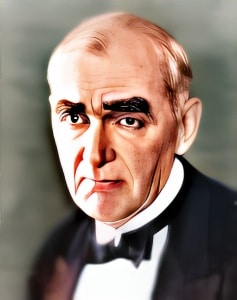 Frank Powell, born on May 5, 1877, in San Francisco, California, was a prominent figure in the early days of American cinema, contributing as both an actor and director.
Frank Powell, born on May 5, 1877, in San Francisco, California, was a prominent figure in the early days of American cinema, contributing as both an actor and director.
Although his name may not be as well-remembered today, his work left an indelible mark on the silent film era and the evolving film industry.
Powell began his career as a theater actor, gradually transitioning into film. In the early 1900s, silent films were still in their experimental stage, relying on visual storytelling and nonverbal acting. As an actor, Powell displayed his versatility in bringing characters to life, captivating audiences with his performances.
While acting was his initial foray into the film industry, Powell would later become known for his work behind the camera as a director. His directorial skills helped shape the narratives and visuals of the emerging medium, contributing to the development of early film grammar and narrative techniques.
One of Powell’s notable directorial accomplishments was “ The Fireman” (1916), a comedy film featuring the legendary Charlie Chaplin. This collaboration with Chaplin showcased Powell’s ability to direct humor and physical comedy, earning acclaim and recognition in the industry.
Powell’s directorial portfolio extended beyond comedy. He directed a diverse range of silent films, including dramas, comedies, and character-driven stories, highlighting his adaptability and creative versatility as a director.
One noteworthy film in Powell’s directorial career was “ The Country Doctor” (1909). This silent film featured Powell’s storytelling prowess. It contributed to the emerging visual language of early cinema, encapsulating the essence of the era.
Despite his significant contributions to silent cinema, Powell’s career encountered new challenges with the advent of sound films. While his earlier work primarily focused on silent films, his extensive experience and adaptability allowed him to navigate the changing landscape of the film industry.
In conclusion, Frank Powell was a multifaceted figure in the early years of American cinema. His career encompassed both acting and directing, and he transitioned seamlessly between these roles. His collaborations with Charlie Chaplin, such as “ The Fireman,” and directorial achievements like “ The Country Doctor,” solidified his place in the history of early Hollywood.
Though his name may have faded from contemporary recognition, Powell’s contributions to the development of early film storytelling and visual language remain a testament to his lasting influence on the evolving art of cinema.
Loading live eBay listings...




